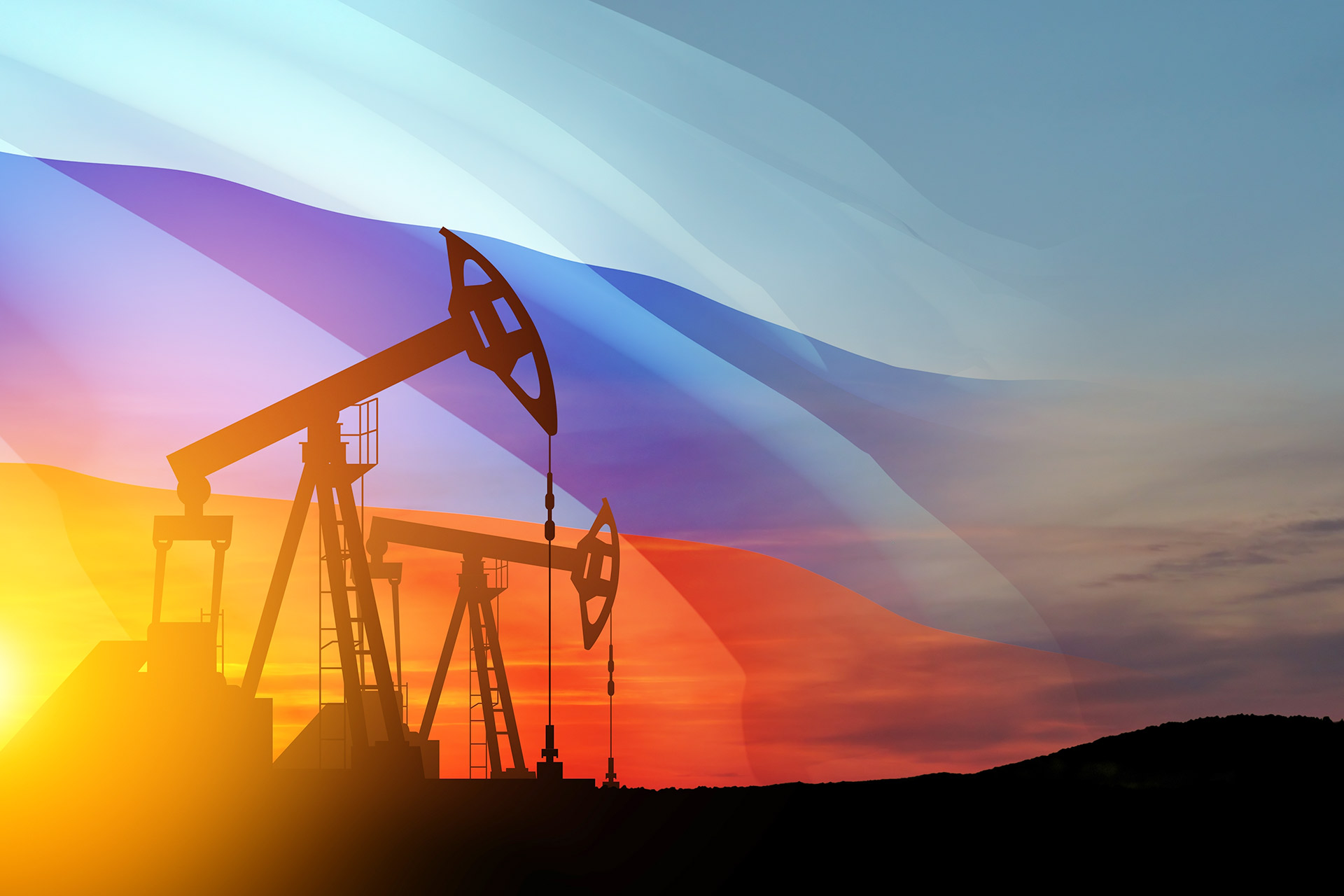Moscow
- The global oil market has officially entered a "repositioning" phase with the entry into force of the decision of the European Union and the Group of Seven countries to impose a ban on importing petroleum products from Russia.
These measures are a continuation of the sixth package of sanctions imposed in December 2022, when the European Union and the Group of Seven countries set a ceiling for the price of Russian crude oil, which is delivered by sea, at $60 a barrel.
The ban on fuel imports from Russia to the European Union and the Group of Seven includes preventing the provision of transport services for Russian oil products by sea, as well as insurance, brokerage services and financing operations, with the exception of cases of selling at a price not exceeding $60 per barrel.
The West says its decision is part of a move to limit Moscow's ability to raise money to finance its military operations in Ukraine.
On the other hand, Russian experts believe that the decision is to neutralize Russia from the arena of international competition over the most vital market in the global economy.
How will Russia face the new sanctions?
Economist Victor Lachon believes that Russia has adapted to the sanctions after the recession in the second quarter of the last world, as well as as a result of the shock resulting from the partial military mobilization, but the embargo imposed on Russian oil supplies by sea and a ceiling on its prices may turn into a new shock to the economy, according to what he said. Lashon told Al Jazeera Net.
On the other hand, Lashon explains that since the beginning of the Russian war on Ukraine, the complex sanctions mechanism has shown that it does not achieve the expected results, because Moscow has so far succeeded in evading some sanctions, relying, among other things, on the long-accumulated experience of Iran and Venezuela, which use carriers of intermediary companies. to sell their petroleum products.
Moscow alternatives to maintain its oil revenues
Lashon suggested that Russia would bypass the oil embargo in the Iranian and Venezuelan manner, which would secure a "margin of protection" for the national income.
On the other hand, the price barrier will lead to higher prices for petroleum products, which will eventually be paid by consumers in Europe and the United States, as well as lead to shortages of diesel fuel and gasoline.
The Russian expert also did not rule out that the European decision would have repercussions on the European market itself, "which would push the West and its allies to gradually retreat" from the decision, especially since the Russian budget's income depends, in addition to oil derivatives, on the export of gas and minerals.
He points out that the ban on the supply of Russian fuel will be dangerous even for car owners and shipping companies in Europe, which is threatened by a shortage of diesel fuel, which is crucial to its economy, in addition to its high price, as it not only fuels trucks that transport goods, but also more than 40% of vehicles in the European Union.
Lashon adds that for the Russian internal market, oil refineries can increase the production of fuel oil, and as a result, you get additional income to fill taxes for the Russian budget, indicating that this is what Western countries are trying to prevent.
How will transfers be affected with the new sanctions?
For his part, energy expert Kirill Melnikov points out that a "logistical" problem may arise, since transporting fuel is more expensive than transporting crude oil, as it is most often delivered from the refinery to the port by land or rail, due to the fall of all refineries. Majority of Russia is almost in the offshore areas.
Will Russia resort to selling its oil derivatives on the black market?
Melnikov asserts that Russia still has stable and wide sales markets, and that Russian energy resources will be "willingly" bought by major industrial giants in the world such as India and China, using many intermediary companies, and possibly through tankers. Shadow oil.
The expert in energy affairs expects that despite the European embargo, Russian oil will remain attractive to foreign buyers, although the process of selling it in light of the new restrictions may face political risks and expose Moscow to becoming an unsuitable partner.
At the same time, he points out that Russia will still retain the card of attracting more buyers through discounts on its petroleum products.
By the numbers
Official sources in Russia confirm that the current production capabilities are capable of meeting Russian interests in global energy markets, as well as the country's domestic needs.
Since 2009, the country has witnessed a steady growth in the oil sector, both in terms of production quantities and oil refining volumes.
It is noteworthy that the volume of oil production in Russia last year amounted to 535 million tons, despite the sanctions imposed by the West, and the end of the same year witnessed a 2% increase in production rates compared to 2021, according to official data.
Exports grew by 7%, and refining volumes by 4.3%, according to the official statistics agency Rosstat.

